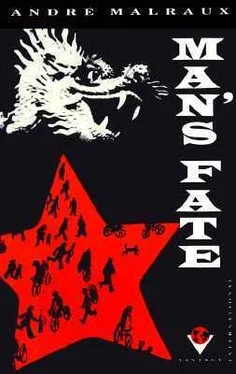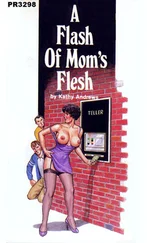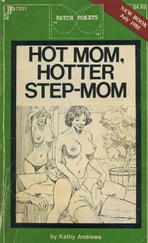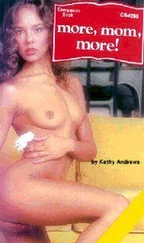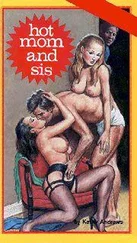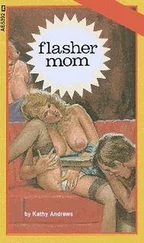He pointed to the armored train, grounded in the sunlight.
“. ourselves. Can you hand over arms to the troops tomorrow evening? We need them urgently. We are continuing to march on Nanking.”
“I doubt if it will be possible to recover more than half the arms.”
“Why?”
“.Al the Communists won’t be willing to give them up.”
“Even on orders from Hankow?”
“Even on orders from Moscow. At least, not immediately.”
They felt the officer’s exasperation, although he did not show it.
“See what you can do,” he said. “I shall send someone about seven.”
He went out.
“Are you willing that we should give up the arms?” Kyo asked Katov.
“I'm trying to understand. Before anything else, we must go to Hankow, you see. What does the Int’mational want? First of all, use the army of the Kuomintang to
unify China. After that d’velop the Rev’lution by prop’-' ganda and the rest. It must change of its own accord from a dem’cratic Rev’lution into a socialist Rev’lution.” “Chiang Kai-shek must be killed,” said Ch’en.
“Chiang Kai-shek will no longer allow us to go as far as that,” answered Kyo, ignoring Ch’en’s remark. “He cannot. He can maintain himself here only by drawing on the customs and the contributions of the bourgeoisie, and the bourgeoisie won’t pay for nothing: he will have to pay them back with the corpses of Communists.” “Al that,” said Ch’en, “means nothing.”
“Leave us alone,” said Katov. “You don’t think you’re going to try to Chiang Kai-shek without the consent of the Central Committee, or at least the delegate of the Int’rnational?”
A distant rumble gradually filled the silence.
“You’re going to Hankow?” Ch’en asked Kyo. “Naturally.”
Ch’en was pacing back and forth in the room, beneath all the pendulums and balance-wheels of the various timepieces which went on ticking their measure.
“What I have said is very simple,” he said at last. “The essential. The only thing to do. Let them know.” “Will you wait?”
Kyo knew that if Ch'en hesitated instead of answering, it was not because Katov had convinced ^m. It was because none of the present orders of the International satisfied the profound passion which had made him a revolutionary; if he accepted them, through discipline, he would no longer be able to act. Kyo watched that hostile figure beneath the clocks: he had made the sacrifice of himself and of others to the Revolution, and now the Revolution would perhaps throw him back into
his solitude with his memories of assassinations. At once with him and against him, Kyo could no longer either join him nor break with him. Beneath the brotherhood of arms, at the very moment when he was looking at that armored train which they would perhaps attack together, he felt the possibility of a break as he would have felt the threat of an attack in a friend who was epileptic or insane, at the moment of his greatest lucidity.
Ch’en had resumed his pacing; he shook his head as in protest, said finaliy: “Good,” shrugging his shoulders as though he were saying this to gratify a childish whim of Kyo’s.
The rumble became audible again, louder, but so confused that they had to strain their ears in order to ' make out what it was. It seemed to rise from the eanh.
“No,” said Kyo, “they are shouts.”
They drew nearer, and became more distinct.
“Could they be taking the Russian church?. asked Katov.
Many govemmentals were entrenched there. But the cries were approaching, seeming to come from the outskirts towards the center. Louder and louder. Impossible to make out any words. Katov threw a glance towards the armored train.
“Could they be getting reenforcements?”
The shouts, still indistinguishable, were coming closer and closer, as though some capital news were being passed on from crowd to crowd. Vying with them, another sound was making itself heard, and finally became distinct: the rhythmic beating of footsteps on the ground.
“The army,” said Katov. “They’re our men.”
Without a doubt. The shouts were acclamations. Difficult still to distinguish from yells of fear; Kyo had heard similar shouts from a mob fleeing before a flood. The hammering of footsteps changed into a ripple, then continued: the soldiers had stopped and were starting off in another direction.
“They’ve been told that the armored train is here,” said Kyo.
Those in the train no doubt did not hear the shouts so well as they, but they could not help hearing the beating of the footsteps, transmitted by the resonance of the steel-plates.
A tremendous uproar took all three of them by surprise: with every piece, every machine-gun, every rifle, the train was firing. Katov had been in one of the Siberian armored trains; his imagination, getting the better of made him participate in the last moments of this one. The officers had given the command to fire at wil. What could they do in their turrets, a telephone in one hand, a revolver in the other? Each soldier guessed no doubt what that hammering of footsteps meant. Were they preparing to die together, or to throw themselves upon one another, in that enormous submarine which would never rise again?
The train was working itself into a frenzy. Stil firing. from every gun, shaken by its very panic, it seemed to want to tear itself from its rails, as if the desperate rage of the men it sheltered had passed into the imprisoned armor, which was also struggling. What fascinated Katov in this unbridled outburst was not the mortal intoxication into which the men of the train were sinking; it was the quivering of the rails which resisted all those roars: he made a forward movement with his arm, to prove to himself that he was not paralyzed. Thirty seconds, and the uproar ceased. Above the dull reverberation of the footsteps and the tictac of all the clocks in the shop, a rumble of heavy iron became dominant: the artillery of the revolutionary army.
Behind each steel-plate a man on the train heard that noise as the voice of death itself.
HANKOW was close by: the to and fro movement of sampans almost covered the river. The chimneys of the arsenal became detached from the hill behind it little by little, almost invisible under their enormous smoke; through the bluish light of the spring evening the city with all its colonnaded bank buildings appeared at last through the sharp black framework of the foreground — the battleships of the Western nations. For six days Kyo had been ascending the river, without news from Shanghai.
A foreign launch whistled against the ship’s side. Kyo’s papers were in order, and he was accustomed to clandestine action. He merely took the precaution to move to the forward part of the ship.
‘What do they want?” he asked a mechanic.
“They want to know if we have rice or coal on board. We’re not allowed to bring in any.’’
“In the name of what?”
‘A pretext. If we bring coal they say nothing, but they arrange somehow to have the ship laid up in port. No way of bringing provisions to the city.”
Over there were chimneys, cranes, reservoirs-the allies of the Revolution. But Shanghai had taught Kyo what an active port was like. The one he saw before him was full of nothing but junks and torpedo-boats. He took his field-glasses: a freight-steamer, two, three.
. A few more. His was docking on the Wuchang side. He would have to take the ferry to get to Hankow.
He went ashore. On the dock an officer on duty was watching the passengers land.
“Why so few ships?” asked Kyo.
“The Companies have got everything out of sight: they’re afraid of the requisition.”
Читать дальше
